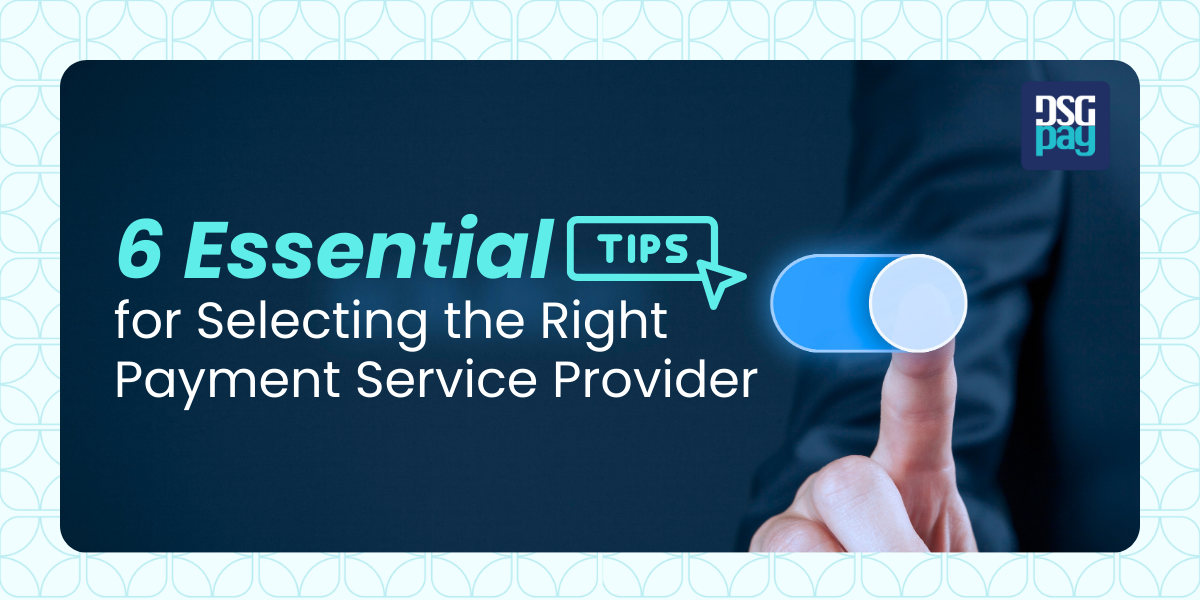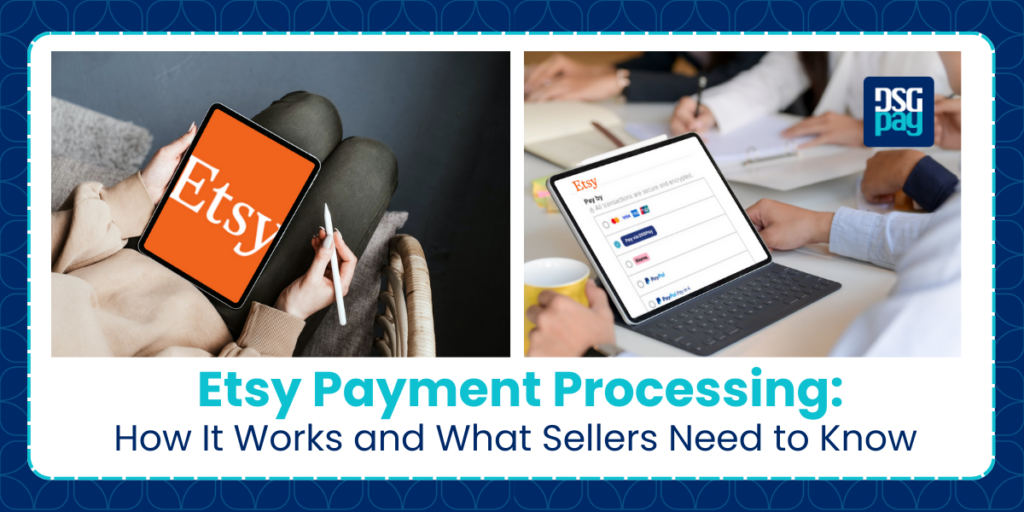As businesses increasingly shift to digital transactions, selecting the right payment service provider (PSP) has become a crucial decision. The right provider ensures seamless payment processing, enhances security, and improves customer satisfaction. However, with numerous options available, finding the best PSP for your business can be challenging.
The digital payments market is expanding rapidly, with the total transaction value expected to reach $20.37 trillion by 2025. This growth highlights the rising demand for secure, efficient, and scalable payment solutions. To stay competitive, businesses must choose a payment service provider that aligns with their needs and can support long-term growth.
In this guide, we will discuss critical factors to consider when selecting a payment service provider. By carefully evaluating these factors, you can make an informed decision and choose a payment service provider that can help drive your business forward.
Table of Contents
What is a Payment Service Provider?
A payment service provider (PSP) is a company that enables businesses to accept electronic payments from customers through various payment methods, including credit and debit cards, bank transfers, and e-wallets. PSPs handle the complex process of payment authorization, settlement, and security, ensuring that businesses can process payments smoothly while protecting sensitive financial data.
How Does a PSP Work?
A Payment Service Provider (PSP) acts as an intermediary between a business, customers, banks, and payment networks, enabling smooth and secure transactions.
The process typically involves the following steps:
- Customer Initiates a Payment: When a customer makes a purchase on an e-commerce website, they choose a payment method (e.g., credit card, bank transfer, or digital wallet) and enter their payment details at checkout.
- Payment Gateway Transmits Data: The PSP uses a payment gateway to securely transmit the payment details to the acquiring bank (the merchant’s bank) via encryption and fraud prevention measures.
- Authorization Request to Card Network: If the payment method is a credit or debit card, the acquiring bank forwards the request to the relevant card network (e.g., Visa, Mastercard, or Amex). The card network then sends the request to the issuing bank (the customer’s bank).
- Issuing Bank Verifies the Transaction: The customer’s issuing bank checks the payment details, available funds, and fraud indicators. It then either approves or declines the transaction and sends the response back through the card network.
- Payment Confirmation and Settlement: If the transaction is approved, the funds are temporarily held and later transferred from the customer’s bank to the merchant’s account.
- Funds Deposited into Merchant’s Account: The PSP deposits the funds into the merchant’s Internet Merchant Account (IMA) after the settlement period, which typically takes 1-3 business days depending on the PSP’s processing policies.
What Does a PSP Offer to Businesses?
PSP offers businesses a wide range of payment processing solutions to help them accept and manage electronic transactions efficiently.
Here’s what a PSP offers to businesses:
| Service Category | Key Features |
| Multi-Channel Payment Acceptance | Online Payments: Credit/debit cards, e-wallets, BNPL, and bank transfers for e-commerce websites. In-Store Payments: POS (Point-of-Sale) terminals for physical stores. Mobile Payments: Contactless payments via Apple Pay, Google Pay, and QR codes. Subscription & Recurring Billing: Automated billing for SaaS, memberships, and services. |
| Payment Gateway | Encryption & Tokenization: Protects sensitive customer data. Real-time Payment Processing: Fast authorization and approval. |
| Internet Merchant Account (IMA) | Faster Payouts: Funds are transferred to the merchant’s bank account in 1-3 business days. Multi-Currency Transactions: Businesses can accept payments in different currencies. |
| Fraud Prevention and Security Compliance | PCI DSS Compliance: Ensures businesses meet security standards. AI-Based Fraud Detection: Identifies suspicious activities and prevents chargebacks. Chargeback Management: Assists in dispute resolution and reduces revenue loss. |
| Integration and API Support | E-commerce Platforms ERP & Accounting Software Custom API & SDKs: Developers can integrate PSPs into mobile apps and custom-built websites. |
| Analytics and Reporting Tools | Transaction Reports: Monitor sales, revenue, and failed payments. Customer Insights: Track payment behaviors and trends. Automated Invoicing: Generate invoices for B2B and B2C payments. |
| Customer Support | 24/7 Support: Assistance via live chat, phone, or email. |
| Global Expansion and Multi-Currency Payments | Cross-Border Payments: Accept payments in multiple currencies. Local Payment Methods: Support for region-specific payment options. |
How to Choose a Payment Service Provider
Choosing the right payment service provider requires careful evaluation of multiple factors. Here are the 6 key considerations to keep in mind:
1. Security and Fraud Prevention
Ensuring secure payment processing and fraud prevention is crucial for any business that deals with online payments. Payment service providers play a critical role in this process, as they are responsible for processing and securing transactions on behalf of their clients.
When selecting a payment service provider, it is essential to consider the security measures they have in place to protect sensitive data and prevent fraudulent activities. Look for providers that offer features such as:
- Tokenization: Replaces sensitive card data with encrypted tokens.
- SSL Encryption: Ensures data transmission security.
- Fraud Monitoring: Uses AI-driven tools to detect and prevent fraudulent activities.
2. Payment Methods
Customers expect multiple payment options, so your payment service provider should support:
- Bank transfers
- Digital wallets
- Mobile wallets
- Buy Now, Pay Later (BNPL)
- Credit and debit cards
It’s important to choose a payment service provider that offers the payment methods that your customers prefer and trust. Additionally, offering a variety of payment methods can help expand your customer base and increase customer satisfaction.
However, it’s important to keep in mind that different payment methods may come with different fees and processing times, so it’s important to carefully evaluate your options.
3. Pricing and Fees
Payment service providers offer a variety of pricing structures and fee models. Some providers charge a flat fee per transaction, while others charge a percentage of the transaction value. Some providers offer volume-based discounts, while others have tiered pricing based on the volume of transactions processed.
It is important to carefully review and compare pricing and fees across different providers to ensure you are getting the best value for your business. Keep in mind that there may be additional fees for certain services, such as chargebacks or refunds. It is also important to understand the terms of the contract and any potential hidden fees that may be incurred.
4. Integration and Compatibility
One of the essential factors to consider when choosing a payment service provider is integration and compatibility with your existing systems and software.
The payment service provider you choose should be able to integrate with your existing business systems and provide a seamless payment experience for your customers. This includes ensuring that the payment solution is compatible with your website, mobile app, or other platforms. You should also consider the ease of integration when selecting a payment service provider.
Some providers offer APIs and plugins that make it easy to integrate their payment solutions into your existing systems. You should also check the provider’s documentation and support services to ensure that they offer the technical support you need to set up and maintain the integration.
5. Customer Support and Service
Customer support and service is an essential aspect to consider when selecting a payment service provider. A reliable and responsive support team can help address any issues that may arise during payment processing, ensuring smooth and efficient transactions.
It’s important to evaluate the quality of customer support offered by potential payment service providers, including the availability of support channels, response times, and the expertise of support staff.
Additionally, some payment service providers offer dedicated account managers or customer success teams to provide personalised support and guidance. It’s important to ensure that the level of customer support offered aligns with your business needs and expectations.

6. Reputation and Reviews
When considering a payment service provider, it’s important to assess their reputation in the industry. Look for providers that have a strong track record of providing secure and reliable payment processing services.
One way to gauge a provider’s reputation is to read reviews from other businesses. This can provide insight into their experiences with the provider, including any issues they may have had with payment processing or customer support.
Conclusion
Choosing the right payment service provider for your business is a crucial decision that can impact your cash flow, customer satisfaction, and overall success. When evaluating payment service providers, it’s important to consider factors such as security and fraud prevention, payment methods, pricing and fees, integration and compatibility, customer support and service, and reputation and reviews.
By carefully assessing these factors, you can make an informed decision and choose a payment service provider that meets your business’s specific needs and goals. Don’t underestimate the importance of this decision – take the time to research and choose a payment service provider that can help drive your business forward.
DSGPay – A Trusted Payment Service Provider
For businesses looking for a reliable, secure, and scalable payment service provider, DSGPay offers:

- Virtual Accounts for Easy Transactions: Provides virtual accounts to streamline collections, payouts, and fund management for businesses.
- Mobile App for Payment Management: Enables businesses to track transactions, manage payments, and monitor cash flow conveniently on the go.
- Multi-Currency Payment Solutions: Supports transactions in over 30 currencies, enabling businesses to accept global payments seamlessly.
- Transparent & Competitive Pricing: Offers cost-effective transaction fees with clear pricing structures, ensuring businesses get the best value.
- Seamless System Integration: Easily integrates with e-commerce platforms, ERP systems, mobile apps, and custom APIs for a frictionless payment experience.
- Enhanced Security: Includes fraud prevention and ensures compliance with regulatory requirements.
- Dedicated Customer Support: Includes access to knowledgeable support representatives who can assist with a range of issues, from technical difficulties to account management queries.
DSGPay ensures fast, secure, and global payment processing, helping businesses streamline transactions and expand their market reach.



